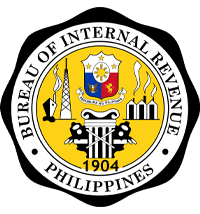
How Business Registration in the Philippines Works
Planning to start a business in the Philippines? You’ll need to comply with legal requirements in several government agencies:
- Department of Trade and Industry (DTI)
- Securities and Exchange Commission (SEC)
- Local Government Unit (LGU)
- Bureau of Internal Revenue (BIR)
- Department of Labor and Employment (DOLE)
- Social Security System (SSS)
- Other agencies as required in your industry (e.g. National Food Authority, Bureau of Fisheries and Aquatic Resources, DTI Intellectual Property Office)
The Importance of Business Registration in the Philippines
Non-registered businesses incur costly penalties and may face permanent closure. But aside from compliance, there are other positive benefits to business registration: tax breaks and non-monetary incentives.
Eligible companies can take advantage of reduced tax rates, long-term land leases, and simplified customs procedures. Investment promotion agencies like the Philippine Economic Zone Authority (PEZA) and Board of Investments (BOI) offer these perks.

Types of Business Structures in the Philippines
The process of registering your business in the Philippines will depend on the type of business
entity you have in mind. Loft can assist you with finding the right one for your needs.

Sole Proprietorship
Registering a sole proprietorship is the simplest and fastest way to set up your business. A single owner controls all assets and profits and can mix business and personal assets.

One Person Corporation (OPC)
Register as an OPC to get most of the perks of a traditional corporation without the need for more than one stockholder. An OPC has a single owner and limited liability.

Domestic Corporation
Registering as a domestic corporation is a popular choice for businesses with foreign investors. Corporation equity can be: 100% Filipino, 60% Filipino + 40% Foreign, or 40%-100% Foreign.

Partnership
Registering a general or limited partnership between two or more individuals is suitable for both local and foreign companies in the Philippines.

Foreign Corporation
Registering a foreign company in the Philippines is possible via domestic corporation or resident foreign corporation.

PEZA and BOI Accreditation
Register with PEZA or BOI to take advantage of economic incentives in the Philippines. Find out if your business is eligible for these perks.
Philippine Government Agencies for Business Registration
Loft saves you the back-and-forth trips to government offices. We help facilitate
business registration transactions with these government agencies.





Business Registration Requirements
for Local Incorporated Companies
Any business registered under Philippine law needs to comply with business registration requirements from various government agencies. Below is an overview of what to expect.
DTI Registration
Sole proprietorship businesses must be registered with DTI. Basic requirements include:
- Accomplished DTI Sole Proprietorship Application Form
- Valid government-issued ID
- Acceptable visa (for non-Filipinos)
- Proof of Inward Remittance (for non-resident alien) or Bank Certificate of Deposit (for resident alien)
- Notarized Appointment of Resident Agent, if necessary (for non-Filipinos)
- Other supplementary documents and/or forms as required by BOI
SEC Registration
One person corporations (OPC), domestic corporations, and partnerships must be registered with the SEC. Basic requirements include:
- Articles of Incorporation
- Articles of Partnership
- Three key officers: president, treasurer, and corporate secretary (for corporations)
- Nominee and alternate nominee (for OPC)
- By-laws (for 2-15 incorporators)
- Foreign Investments Act F-100 Form (if foreign-owned)
- Shareholders’ information, including equity (for 2-15 incorporators)
Barangay Clearance
All types of businesses must secure a barangay clearance. The barangay is the smallest LGU in the Philippines. Basic requirements include:
- Application Form
- DTI or SEC Certificate of Registration
- Approved Articles of Incorporation (all corporations)
- Approved Articles of Partnership (for partnerships)
- Approved By-Laws (for domestic corporations)
- Secretary’s Certificate (for corporations) or Special Power of Attorney (for sole proprietorship)
- Site map of the business’s location
- Contract of lease for business office address
Mayor’s Permit/Municipal License Registration
All types of businesses must also register with the city where they plan to operate. The terms “Mayor’s Permit,” “Business Permit,” and “Municipal License” are often used interchangeably, but they all refer to the same requirement.
Although certain requirements will vary depending on the city where you’re operating, basic requirements usually include:
- Application form
- Barangay Clearance
- Zoning Clearance
- Occupancy Permit
- Fire safety inspection permit
- Sanitation Permit
BIR Registration
All types of businesses must register with BIR for tax purposes. Once approved, BIR will provide your business with a tax identification number (TIN) and authority to print receipts and invoices. Basic requirements include:
- BIR Form 1901 (for sole proprietorships)
- BIR Form 1903 (for corporations and partnerships)
- BIR Form 2000
- Mayor’s Permit or municipal license
- Contract of lease
SSS and DOLE Registration
All businesses with employees must comply with Philippine labor standards and regulations.
Any employer who benefits from the services of a person must be registered with SSS.
Businesses with at least one employee are required to register with DOLE.
Business Registration Requirements
for Foreign Companies
Foreign corporations can do business in the Philippines through locally registered extensions of their head offices. Aside from the standard permits that all businesses must acquire, overseas companies must also choose from these business registration options.
Branch Office
A branch office in the Philippines is an extension of a foreign corporation’s head office. It’s allowed to engage in income-generating activities. Even though a branch office is based overseas, it doesn’t have a separate legal identity from the head office.
Representative Office
A representative office is limited to conducting non-commercial activities for its parent company. It doesn’t have a separate legal identity. Since it cannot engage in revenue-generating activities, it’s not allowed to directly offer products/services in the country.
Permitted activities for representative offices in the Philippines include:
- Marketing and promotion of products/services
- Quality control of products/services
- Facilitating product/service orders
- Passive acts that don’t involve direct income-generation activities
Regional Headquarters (RHQ)
An RHQ is another business entity that cannot engage in income-generation. It’s a popular option for foreign companies with an international network of subsidiaries, branches, and affiliates. It doesn’t have a separate legal identity from its parent company.
Permitted activities for RHQs in the Philippines include:
- Overseeing and organizing administrative tasks
- Providing employee training
- Procuring raw materials and market goods for parent company
- Conducting product/service research and development
Regional Operating Headquarters (ROHQ)
An ROHQ is an income-generating entity that expands its parent company’s business activities in the Philippines. It’s often established by foreign corporations with an international network of subsidiaries, branches, and affiliates.
However, the ROHQ isn’t allowed to engage in the following activities:
- Marketing the products/services of its parent company
- Offer qualifying services to third-party enterprises that are not its associated branches or subsidiaries.
Frequently Asked Questions (FAQs) on
Business Registration
Loft works with businesses of all sizes, from small-and-medium enterprises (SMEs) to multinational corporations. We provide end-to-end business registration assistance, which includes:
- Company incorporation
- Foreign licensing
- Application for business permits
- Assessing eligibility for tax incentives
- Corporate restructuring
We can also help you in evaluating the following:
- Nature of the business
- Ideal location for the business
- List of business activities to engage in
- Market-entry plans of the business
- Capital requirements on chosen industry (including options for reducing the minimum capital required for starting operations)
- Appointment of nominee director/s or resident agent
- Choosing corporate officers (e.g. president, corporate secretary, treasurer)
- Staffing requirements to assess the approximate size of office space and facilities
Loft has an in-house team of seasoned business registration experts and bookkeeping professionals. Additionally, we also have a corporate lawyer who provides us with sound legal guidance on company formation and business registration in the Philippines.
The timeframe of registration will vary depending on the exact business entity you choose and the prompt submission of requirements. Here’s a preview, so you know what to expect:
- SEC incorporation can take anywhere from 3 to 4 weeks.
- BIR registration can take anywhere from 3 to 4 weeks.
- LGU registration can take anywhere from 4 to 6 weeks
- DOLE Rule 1020 Registration can take anywhere from 4 to 6 weeks.
Get in touch with us via email or via phone call to learn more.
If you bought a virtual office package from Loft on top of business registration support, you may enjoy the amenities in our spaces.
However, if you got the business registration packages only, you must make a paid booking every time you need to use our spaces here at Loft.
Loft is open from Monday to Friday. We are closed on Saturdays and Sundays. See more detailed information below:
Loft Ortigas
• Walk-ins welcome!
• Open from Monday to Friday (8AM-6PM)
• 30th Floor, One Corporate Center Meralco Ave cor. Julia Vargas Ave, Ortigas Center, Pasig, Philippines
Navigate via Google Maps
Loft BGC
• By appointment only
• Open from Monday to Friday (8AM-6PM)
• Unit 707, 7th Floor, One Park Drive, 11th Drive Corner 9th Avenue, BGC, Taguig, Philippines
Navigate via Google Maps
Loft Quezon City
• By appointment only
• Open from Monday to Friday (8AM-6PM)
• 27th Floor, IBM Plaza Building, E. Rodriguez Jr. Avenue, Eastwood, Quezon City, Philippines
Navigate via Google Maps
touch with us via email at hello(at)loft(dotted)me, via phone call, or using our website contact form.
